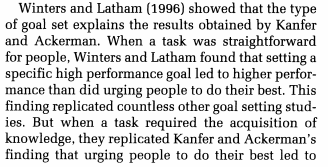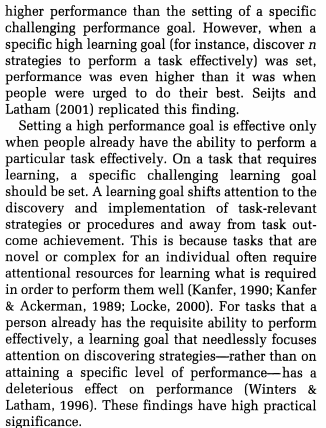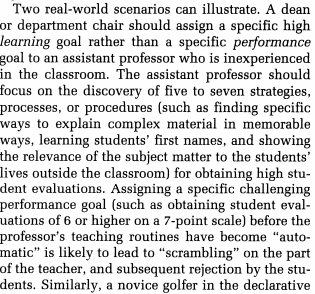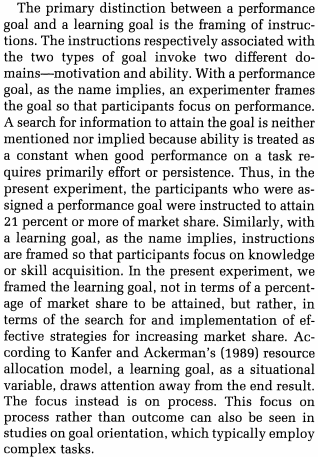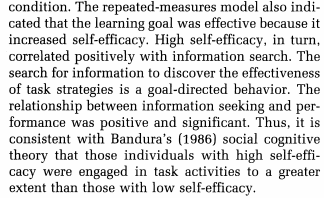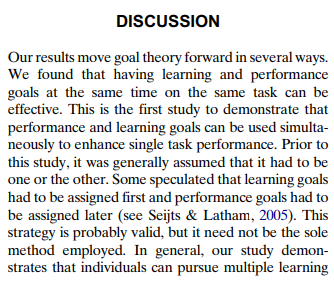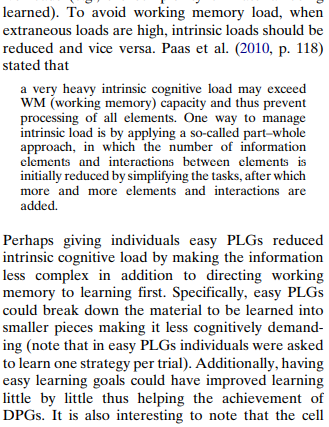Thanks to @ryandal for putting me onto this brilliant paper by @GerardSeijts et al. This absolutely nails why teacher performance goals aren& #39;t helpful if teachers don& #39;t *already* have all the skills/resources to achieve the performance. https://citeseerx.ist.psu.edu/viewdoc/download?doi=10.1.1.705.7789&rep=rep1&type=pdf">https://citeseerx.ist.psu.edu/viewdoc/d...
A performance goal such as & #39;achieve these class results& #39; is only helpful for a teacher if they already have all the perceptive understanding of students& #39; challenges, the skill and resources to meet them. It encourages them to prioritise attention/time/effort to this goal.
But if & #39;doing more of the same& #39; or redoubling of existing efforts won& #39;t cut it, then use of a performance goal instead of a learning goal is likely to hinder the achievement of better results - it makes teachers less likely to focus on problem-solving & learning.
Importantly, the learning goals stimulate increased self-efficacy which correlates with greater likelihood of & #39;information search& #39;
This paper correlates nicely with the @CIPD @CenterforEBMgt review of performance management https://www.cipd.co.uk/knowledge/fundamentals/people/performance/what-works-in-performance-management-report">https://www.cipd.co.uk/knowledge...
There& #39;s some more nuanced findings from another paper (again HT @ryandal) by Masuda ( @EADABusiness) et al where they find that a combination of learning *and* performance goals can also be effective. https://www.researchgate.net/publication/280529583_The_effects_of_simultaneous_learning_and_performance_goals_on_performance_An_inductive_exploration">https://www.researchgate.net/publicati...
Interestingly, Masuda et al also found that, initially, increasing task challenge was positively associated with performance, but this plateaued and then ultimately fell off. They hypothesise a link with working memory limits.
What would this mean for school performance management? Firstly, recognising that performance goals alone may only be suitable when sufficient understanding, skill, perceptive expertise, self-efficacy, resources are all in place.

 Read on Twitter
Read on Twitter